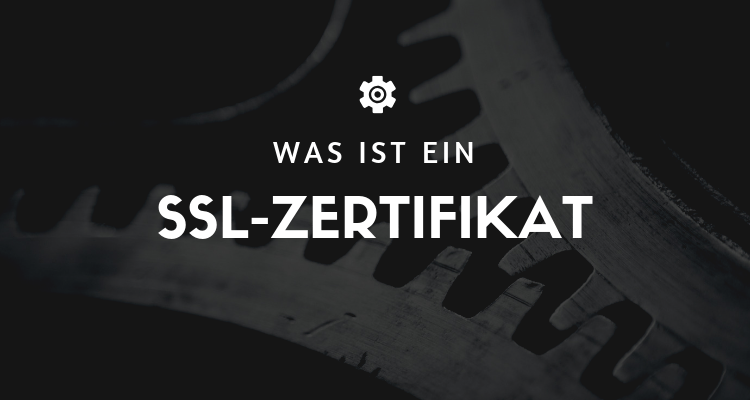What is an SSL certificate (HTTPS)?
Um diese Frage ausreichend zu beantworten müssen wir kurz auf die Grundlagen zu sprechen kommen. Das „s“ am Ende des „http“-Teils einer URL bedeutet, dass die Website „sicher“ ist. HTTPS (Hypertext Transport Protocol Security) oder sichere Websites enthalten den SSL 2048-Bit-Schlüssel und können eine Standortverbindung durch Authentifizierung und Verschlüsselung schützen.
A SSL certificate is thus a block of code on a web server that provides security for online communication. When a Browser makes contact with a secure website, the SSL certificate an encrypted (secure) connection. It's like sealing a package before putting it in the mail.
SSL certificates bring trust because each of them contains identification information - if a SSL certificate is requested, a third party verifies the company's information and then issues the user a unique certificate with that information. This is called the authentication process, and there is a possibility that you may have encountered an error message that contains the phrase.
Do SSL certificates influence SEO?
Already now, pages that have an SSL are given a better ranking by Google. Ranking belohnt und erhalten das charakteristische grüne Schloss auf ihrer URL (Adressleiste). Websites, die Benutzerdaten (Benutzername/Passwort, Kontaktformulare, Newsletter) oder Kreditkarteninformationen für Transaktionen sammeln, die allerdings über kein SSL (unverschlüsselt) verfügen, werden von Chrome mit negativen Sicherheitssymbolen und dem Satz „Not Secure“ in der Adressleiste gekennzeichnet.
This seems appropriate as they are handling sensitive personal data, which will have a negative impact on SEO. Google has also implemented the Google Webmaster-tools to better manage HTTPS sites and reporting on them.
SEO benefits of switching to HTTPS
1. other referrer data
2. HTTPS as a ranking boost
3. security and data protection
4. HTTPS encrypts all communication
5. DSGVO compliance
« Back to Glossary Index

